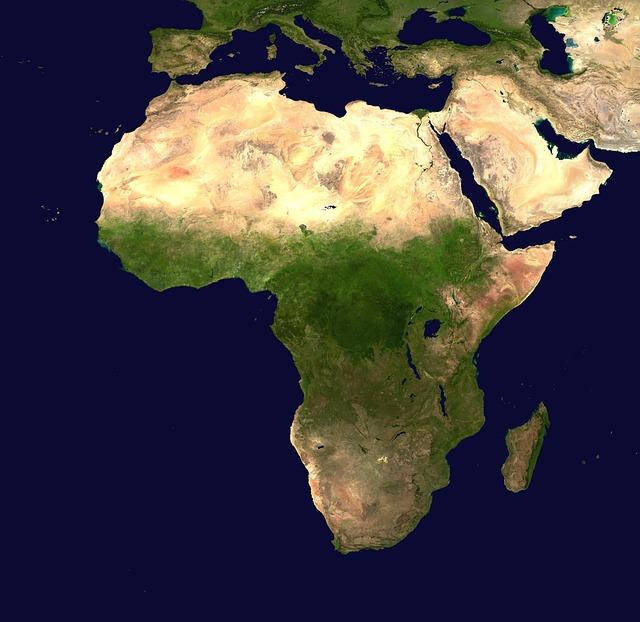In an era marked by increasing migration pressures and tightening border controls, the story of individuals caught in the crosshairs of bureaucratic and geopolitical maneuvering often goes unheard. The recent report by Human Rights Watch (HRW), titled “They Accused Me of Trying to Go to Europe,” sheds light on the troubling reality of migration control abuses in Mauritania. As the European Union strengthens its externalization policies to stem the flow of migrants toward its borders, vulnerable populations in West Africa are facing significant human rights violations. This article delves into the experiences of those accused of attempting to reach Europe, revealing a complex web of systemic abuse and neglect, and raises urgent questions about the consequences of EU migration strategies on the lives of individuals seeking safety and opportunity.
Facing Danger: The Impact of EU Externalization Policies on Mauritanian Migrants
The impact of the European Union’s externalization policies on Mauritanian migrants has been profound and often perilous. Through tightened migration controls and bilateral agreements aimed at curbing irregular migration to Europe, many Mauritanians find themselves caught in a web of abuse and exploitation. Authorities, motivated by EU funding and incentives, have intensified their policing efforts along the migratory routes, leading to increased arrests and detentions. Reports have surfaced detailing instances where individuals attempting to migrate or seeking asylum are wrongfully accused of criminal activities, resulting in harsh treatment by local law enforcement.
High-profile cases illustrate the dire reality these individuals face. Human Rights Watch has documented numerous accounts where migrants endured inhumane conditions in detention facilities. In many instances, the detainees are subjected to:
- Physical violence
- Denial of legal representation
- Inhumane living conditions
As migration policies become increasingly restrictive, the vulnerabilities of Mauritanian migrants continue to rise. Many are left to navigate a treacherous landscape filled with dangerous choices and limited avenues for support, underscoring the urgent need for reform and protection of their rights in the face of stringent externalization efforts.
Critical Insights: Documenting Human Rights Violations in Migration Control
The ongoing situation in Mauritania highlights a troubling pattern of human rights violations linked to migration control as the European Union continues to externalize its border management strategies. Migrants, often fleeing dire circumstances in search of safety and opportunity, face grave abuses at the hands of both state authorities and non-state actors. Eyewitness accounts from individuals who have endured harrowing experiences reveal a systematic approach to control migration through coercion and intimidation. Many of these individuals report being detained without due process, subjected to physical abuse, and facing extortion demands, all of which underscore a significant disregard for human rights norms and protections.
Furthermore, the EU’s agreements with Mauritania and other transit countries appear to do little to safeguard the rights of migrants. These policies often prioritize border security over humanitarian considerations, leading to an environment where migrants are scapegoated as threats rather than supported as individuals in need. Reports indicate that vulnerable populations, including women and children, are particularly at risk when caught in the crosshairs of stringent migration practices. The following issues are of pressing concern in the current human rights landscape:
- Arbitrary Detention: Migrants held for extended periods without charges.
- Violence and Abuse: Physical and psychological harm inflicted by authorities.
- Socioeconomic Exploitation: Migrants coerced into labor without fair compensation.
Calls for Action: Strengthening Protections for Migrants Amid Growing Abuses
Recent reports have highlighted an urgent need for robust interventions to safeguard the rights of migrants in Mauritania amidst a backdrop of escalating abuses linked to externalized migration control by European Union member states. Human rights organizations have documented disturbing patterns of detention, mistreatment, and obstruction faced by individuals attempting to cross the Mediterranean. In light of these findings, stakeholders must prioritize the establishment of frameworks that ensure accountability and protection for vulnerable populations. Key initiatives should include:
- Enhanced Oversight: Implementing independent monitoring mechanisms to assess treatment of migrants by authorities.
- Legal Support: Providing access to legal aid for detained migrants, ensuring their rights to challenge abuses.
- Collaboration with NGOs: Partnering with local and international organizations to provide comprehensive assistance and resources for migrants.
The consequences of current policies extend beyond immediate individual hardships, threatening the fundamental principles of human rights. As European countries continue to externalize migration management, it is imperative to recognize the role these nations play in shaping the treatment of refugees and migrants in transit countries like Mauritania. The following steps are critical to reforming the migration approach:
| Action Item | Description |
|---|---|
| Policy Reform | Revise policies to focus on humane treatment over deterrence. |
| International Cooperation | Strengthen partnerships with African nations to address root causes of migration. |
| Public Awareness | Launch campaigns to educate the public on the challenges faced by migrants. |
Future Outlook
In conclusion, the issues surrounding migration control in Mauritania illustrate a troubling intersection of human rights and geopolitical interests. As the European Union continues to externalize its migration policies, the impact on vulnerable populations becomes increasingly pronounced. The experiences of those wrongfully accused, like the individuals featured in the Human Rights Watch report, highlight the urgent need for accountability and reform in migration management practices. As the world grapples with the complexities of migration, it is essential that the rights and dignity of all individuals are upheld, ensuring that the pursuit of safety and opportunity is not met with abuse and indifference. The challenges faced by migrants in Mauritania serve as a stark reminder of the ongoing struggle for humane treatment and justice in a shifting global landscape. For further insights and updates on this pressing issue, stay tuned to our coverage.







